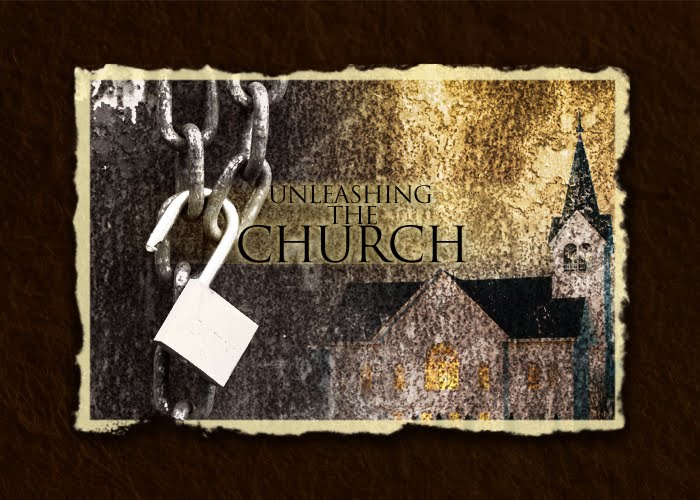In the January 14th blog I ended with the statement, “volunteers operate at just one level of commitment.” So the opposite of commitment for volunteers is compliance.
Most of the time, when we begin our recruit wars, what we really are asking of volunteers is to come and comply. We want them to do what we want them to do, not what God has called them to do. If we really wanted them to do what God wanted them to do we would ask a very different question, “If you could do anything this year for God what would it be?” Then I believe we would set out to equip them to do just that! So what does compliance look like?
Five Possible Levels of Compliance When Responding to a Vision
1.Genuine Compliance: Sees the benefits of the vision. Does everything expected and more. Follows the “letter of the law.” Good Soldiers.
2.Formal Compliance: On the whole sees the benefits of the vision. Does what is expected and more. Pretty good soldiers.
3.Grudging Compliance: Does not see the benefits of the vision. But, does not want to lose job. Does enough of what’s expected but lets it be known that he is really not on board.
4.Noncompliance: Does not see the benefits of the vision and will not do what is expected. “I won’t do it, and you can’t make me.”
5. Apathy: Neither for or against the vision, no interest, no energy, “Is it five
o'clock yet?”
The One Level of Commitment:
Wants it. Will make it happen. Creates whatever “laws” (structures) are needed.
(The Fifth Discipline pgs 219,220)
Followers
Saturday, January 22, 2011
Sunday, January 16, 2011
Spiritual Gifts
And, believe it or not, a strong emphasis on edification does not often generate mission. Mission potential isn't dependent on how well church people:
are fed by good teaching
discover their spiritual gifts
are filled with the Spirit
are thoroughly discipled
understand their emotional temperament (What is a
TJFY, anyway?)
participate in small groups
For years I have watched lay people who minister with passion. They invest their lives in ministries relating to people in cults, in prison, unwed mothers, internationals, physically impaired, etc. They pay a price in time, money, pressure, study and numerous other areas. Sometimes they know their spiritual gift but more often that question never occurred to them. Neither do they, in most cases, spend much time pondering their temperament profile (or if they did, they couldn't remember what it was). They come from all kinds of churches, and have a wide variety of "discipleship and small group experiences," but there is just one common denominator. They possess Want To, a deep God given desire to do a special ministry. Actually what I am describing is simply lay people responding to their ministry callings.
are fed by good teaching
discover their spiritual gifts
are filled with the Spirit
are thoroughly discipled
understand their emotional temperament (What is a
TJFY, anyway?)
participate in small groups
For years I have watched lay people who minister with passion. They invest their lives in ministries relating to people in cults, in prison, unwed mothers, internationals, physically impaired, etc. They pay a price in time, money, pressure, study and numerous other areas. Sometimes they know their spiritual gift but more often that question never occurred to them. Neither do they, in most cases, spend much time pondering their temperament profile (or if they did, they couldn't remember what it was). They come from all kinds of churches, and have a wide variety of "discipleship and small group experiences," but there is just one common denominator. They possess Want To, a deep God given desire to do a special ministry. Actually what I am describing is simply lay people responding to their ministry callings.
Friday, January 14, 2011
Volunteers and Servants
Have you ever heard a church leader clarify the difference between being a volunteer and being a servant. It is not a subject that came up for me in seminary. I have heard church leaders use the words servants and volunteers as though they are synonymous, but they are not. And the difference between them is the difference between the passionate and the interested.
1. Volunteer is the language of the club
Servant is the language of the church,
Every church has a legitimate club dimension. If someone volunteers to be sure that the doors of the church building are unlocked at a certain time, they are unlikely to do the task with passion. Much of what happens in a church has the same dynamic as any other group who meets regularly. Volunteers take care of many of the necessary, but sometimes mundane, needs of the church. Servants do what they do with passion. Can an usher be a servant? Yes, but it is not likely. In most churches the staff and select few lay people function as servants providing the passion while the rank and file are recruited to do the mundane stuff, which the volunteers do.
2. Volunteers pick and choose where and when they will participate, they are willing.
Servants need to participate, they are compelled.
3. Volunteers operate on some level of compliance.
Servants operates on just one level of commitment
1. Volunteer is the language of the club
Servant is the language of the church,
Every church has a legitimate club dimension. If someone volunteers to be sure that the doors of the church building are unlocked at a certain time, they are unlikely to do the task with passion. Much of what happens in a church has the same dynamic as any other group who meets regularly. Volunteers take care of many of the necessary, but sometimes mundane, needs of the church. Servants do what they do with passion. Can an usher be a servant? Yes, but it is not likely. In most churches the staff and select few lay people function as servants providing the passion while the rank and file are recruited to do the mundane stuff, which the volunteers do.
2. Volunteers pick and choose where and when they will participate, they are willing.
Servants need to participate, they are compelled.
3. Volunteers operate on some level of compliance.
Servants operates on just one level of commitment
Saturday, January 01, 2011
Passion Friendly Rules Of Engagement
In warfare Rules of Engagement are important. In military or police operations, the rules of engagement (ROE) determine when, where, and how force shall be used. Such rules are both general and specific, and there have been large variations between cultures throughout history. The rules may be made public, as in a martial law or curfew situation, but are typically only fully known to the force that intends to use them.
Paul casts the Christian life in terms of participating in cosmic warfare when he says,
“We wrestle not against flesh and blood, but against powers and principalities” Eph 6: 12
When the coalition forces invaded Iraq in 2003 they were under orders to follow internationally accepted Rules of Engagement for warfare. In one case an Iraqi unit retreated into a cemetery for a safe haven. American forces did not fire on them because international rules of engagement forbid armies from firing on graveyard and thereby desecrating the dead. But once the Iraqi soldiers made the mistake of firing on American troops from the grave yard the next part of the rule of engagement kicked in, “don’t fire on troops in graveyard, unless they the fire at you.” If they do fire at you, the rules of engagement change.
Here is a current lesson:
Soldiers fighting in Afghanistan believe their rules of engagement are too restrictive and hand the enemy an unfair advantage, a retired US Marine Corps general says.
General Anthony Zinni, a former commander of US central command and now US head of defence company BAE Systems, said he believed concerns about restrictive rules were coalition-wide.
This is an issue touched on by an unnamed Australian soldier in an email complaining about the adequacy of support provided to troops in a major fight with insurgents on August 24 which claimed the life of one digger.
“Everyone is too scared about collateral damage,” he wrote.
General Zinni, in Australia for a strategic leadership forum, said concerns about the rules had been conveyed by coalition and US soldiers, including his own son, a marines (sic) officer in Afghanistan.
“There is a strong sense in on the ground by the company commanders and platoon commanders that the rules of engagement are too restrictive,” he told reporters.
“They result in more casualties. They don’t allow for the kind of immediate engagement. The enemy understands these rules of engagement and manipulates them.”
What parallels do you draw with the local church?
The challenge for church leaders is to do a better job at teaching their “foot soldiers” the Kingdom’s rules of engagement.
Paul casts the Christian life in terms of participating in cosmic warfare when he says,
“We wrestle not against flesh and blood, but against powers and principalities” Eph 6: 12
When the coalition forces invaded Iraq in 2003 they were under orders to follow internationally accepted Rules of Engagement for warfare. In one case an Iraqi unit retreated into a cemetery for a safe haven. American forces did not fire on them because international rules of engagement forbid armies from firing on graveyard and thereby desecrating the dead. But once the Iraqi soldiers made the mistake of firing on American troops from the grave yard the next part of the rule of engagement kicked in, “don’t fire on troops in graveyard, unless they the fire at you.” If they do fire at you, the rules of engagement change.
Here is a current lesson:
Soldiers fighting in Afghanistan believe their rules of engagement are too restrictive and hand the enemy an unfair advantage, a retired US Marine Corps general says.
General Anthony Zinni, a former commander of US central command and now US head of defence company BAE Systems, said he believed concerns about restrictive rules were coalition-wide.
This is an issue touched on by an unnamed Australian soldier in an email complaining about the adequacy of support provided to troops in a major fight with insurgents on August 24 which claimed the life of one digger.
“Everyone is too scared about collateral damage,” he wrote.
General Zinni, in Australia for a strategic leadership forum, said concerns about the rules had been conveyed by coalition and US soldiers, including his own son, a marines (sic) officer in Afghanistan.
“There is a strong sense in on the ground by the company commanders and platoon commanders that the rules of engagement are too restrictive,” he told reporters.
“They result in more casualties. They don’t allow for the kind of immediate engagement. The enemy understands these rules of engagement and manipulates them.”
What parallels do you draw with the local church?
The challenge for church leaders is to do a better job at teaching their “foot soldiers” the Kingdom’s rules of engagement.
Subscribe to:
Comments (Atom)
About Me

- Rich
- I am a slave to no man or institution. I have worked with Frank Tillapaugh for thirty years and most of the ideas are work we would like to share.
The next generation

God thank you for two amazing young leaders
Looking Forward

Each year I get to spend time with young leaders and the gap is growing between them and my generation, why?
Popular Posts
-
I have watched new pastors burn out in less than a year...why? Fuller Institute did a survey and found that 80% of pastors believe that past...
-
General Calling and Special Calling Soon after the Roman emperor, Constantine, converted to Christianity in 315 A.D. churches began to profe...
-
I saw one of my friends (Wes, he is a follower of this blog, God bless him) tonight and he told me after reading this blog he was surprised ...
-
When 20% of the people do 80% of the work in a church, the church leaders usually think that they have an 80% problem. ...
-
I am taking a break from my series to talk about something that just happen. I just met Gavin, he arrived today. His parents Dan and Steph C...
-
If we ask, “what would Jesus do in His new body, i.e. the church; that would be a continuation of what he did in his original body?” The ans...
-
And, believe it or not, a strong emphasis on edification does not often generate mission. Mission potential isn't dependent on how well...
-
Several years ago my friend Frank took a walking tour in London that ended up at Wesley’s chapel. As the tour group ap...
-
Ok yesterday I had one response to my blog and while it was thoughtful I was reminded that words on a screen do not always convey the experi...
-
Nothing influences the environment of a church as much as the preaching. It is through preaching that people understand how their pastor vie...
